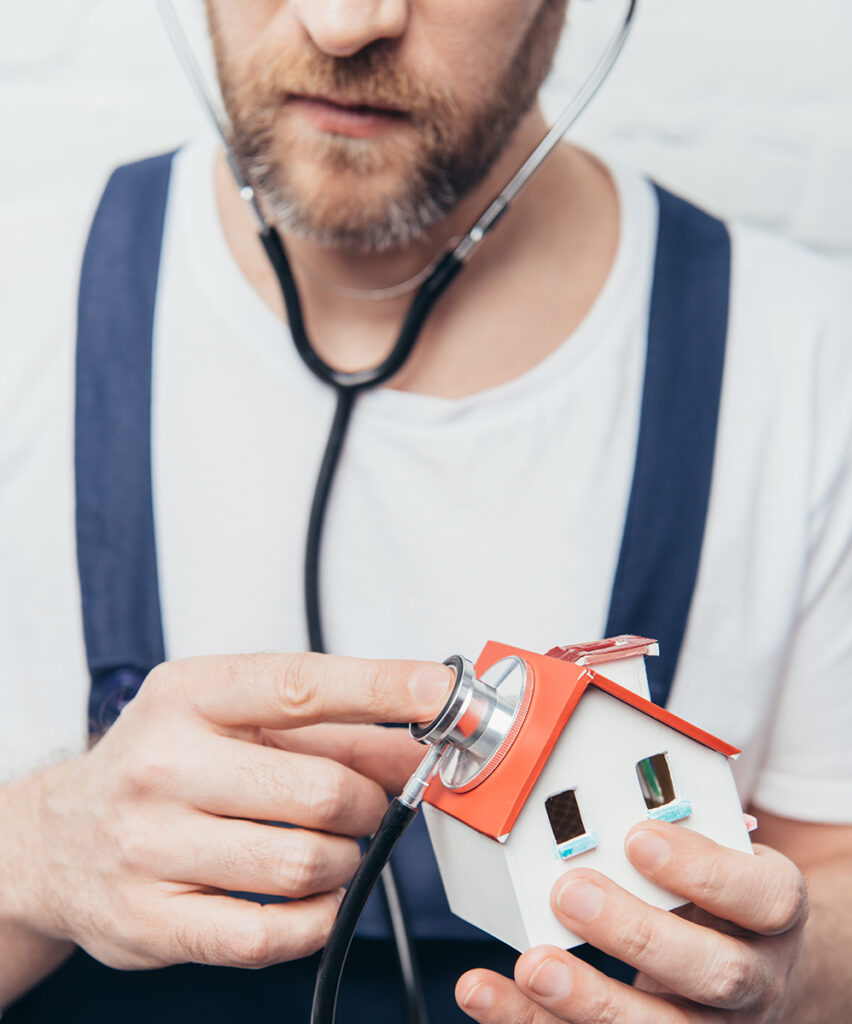The home inspection is a very important step in the home buying process for both the home buyer and seller. The inspection offers an opportunity for the buyer to learn more about how well their new home functions and items that may need to be addressed in order to help it to function even better.
The standard residential sale contract in our area allows a time period agreed upon by the buyer and seller for the inspection to take place and for the buyer to requests any repairs that they would like the sellers to have made before closing. The contract also provides a timeline for the inspection negotiations to take place. During this timeframe, a buyer can choose to have an inspection performed that includes all of the major components of the home that typically includes:
The Roof: The inspector will give an overall opinion of the condition of the roof of the home and an estimate of the timeframe for which the roof will need to be replaced.
The Exterior: The inspector will examine the siding (or brick) and trim of the home to determine if there is any damage to them or water penetration. They will also look at the drainage of the yard to ensure that water flows away from the home. They will also look for signs of pests infestation and examine any decks or patios for damage. The inspector will also test the garage door and opener for proper operation.
The Interior: The inspector will take an overall look at the home and the condition and operation of flooring, doors and also inspect the operation of the windows and look for broken window seals. The inspector will also enter that attic to check for proper insulation and examine the area for any leaks.
Appliances: If applicable, the inspector test the operation of the stove, dishwasher and garbage disposal.
Electrical: Several outlets will be checked for proper grounding and operation. Switches and light fixtures will be inspected for proper operation, and GFCI’s will be inspected for proper operation. The inspector will also examine the electrical panel for code compliance and safety.
Plumbing: We often say that the inspector will run more water than you will ever run at the same time to determine that the plumbing system is functioning properly and examine pipes for leaks.
Heating/Cooling Systems: Depending on the time of the year, the inspector will determine the age and basic functionality of the system.
Basement: The inspector will examine the visible walls of the foundation and give an opinion of the basic condition They will also test the sump pump system for functionality.
There are also some specific inspections that a buyer may choose to have. These are a few of them: radon, termite, gas and sewer lateral line. The building inspector may also suggest specific inspections based upon their findings.
After the inspection a report is supplied to the buyer with all of the findings of the inspector. Based upon the terms of the sale contract, the buyer and seller then have an opportunity to negotiate any repairs to be made, price reductions/closing costs credits or termination of the contract.
The home inspection process can be intimidating, but with the proper knowledge and information it can be a rewarding experience the provides valuable history and expectations of your new home.
*This is general information regarding a home inspection. Please consult your real estate professional for specific information regarding your area or transaction.
Susan Brewer Service First Real Estate (636)936-8600
Published on 2023-01-25 17:36:25


